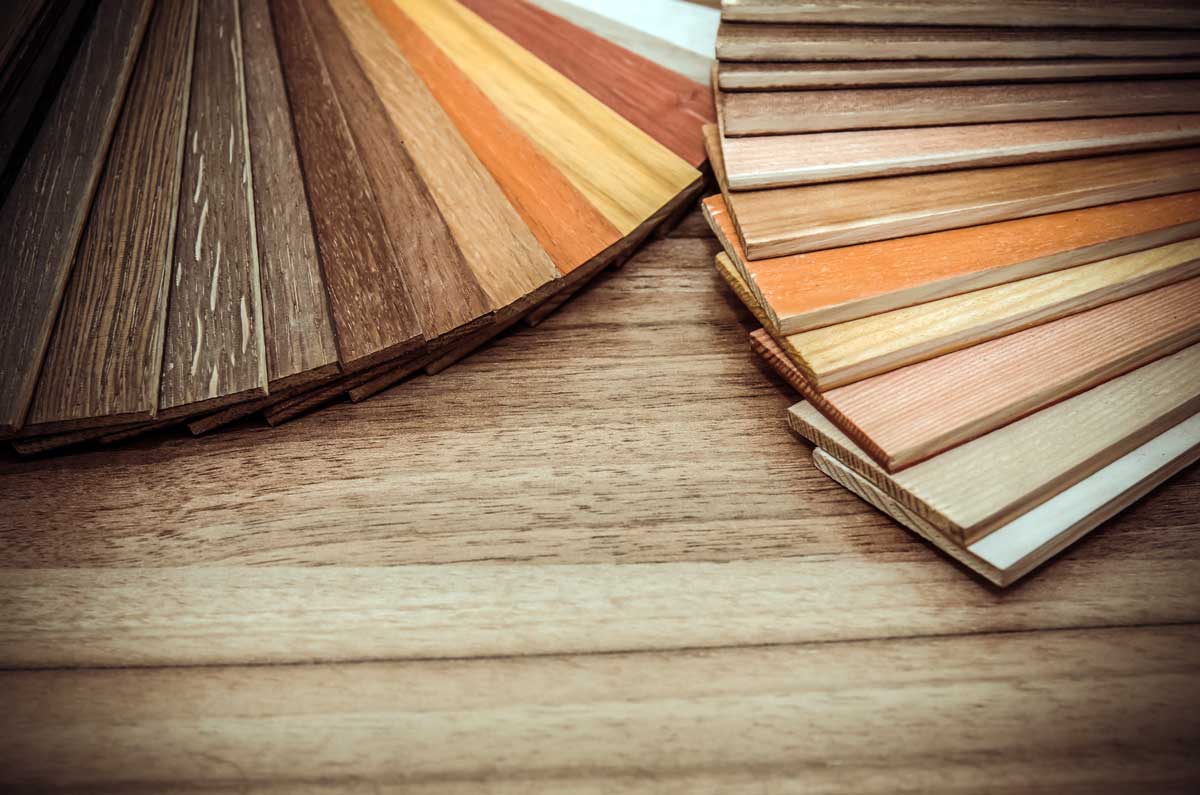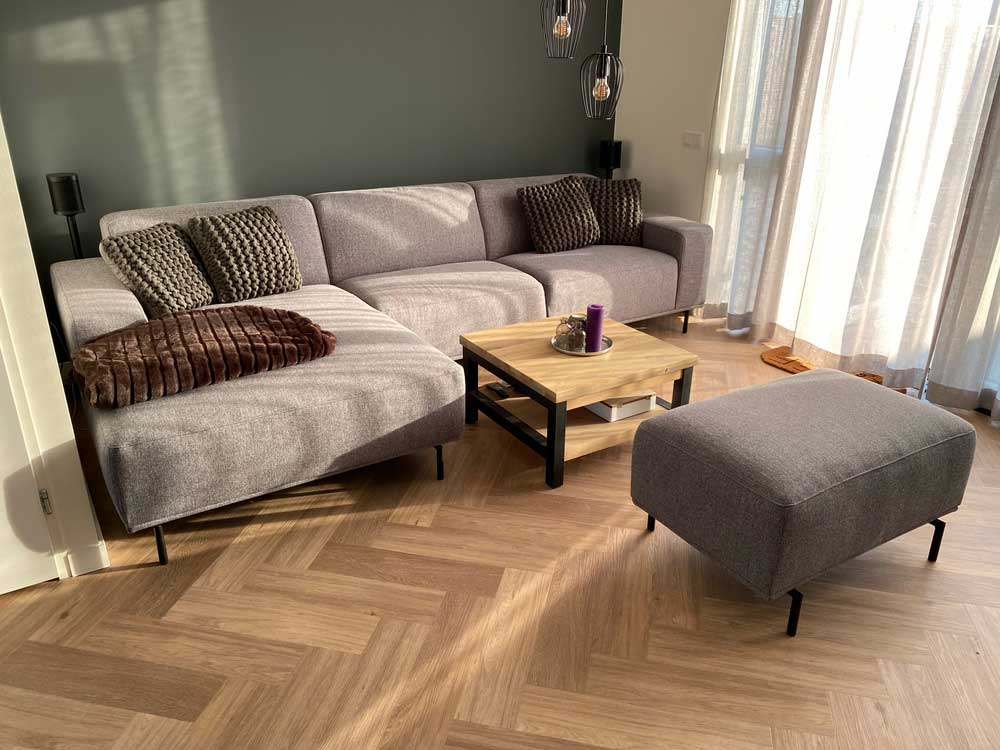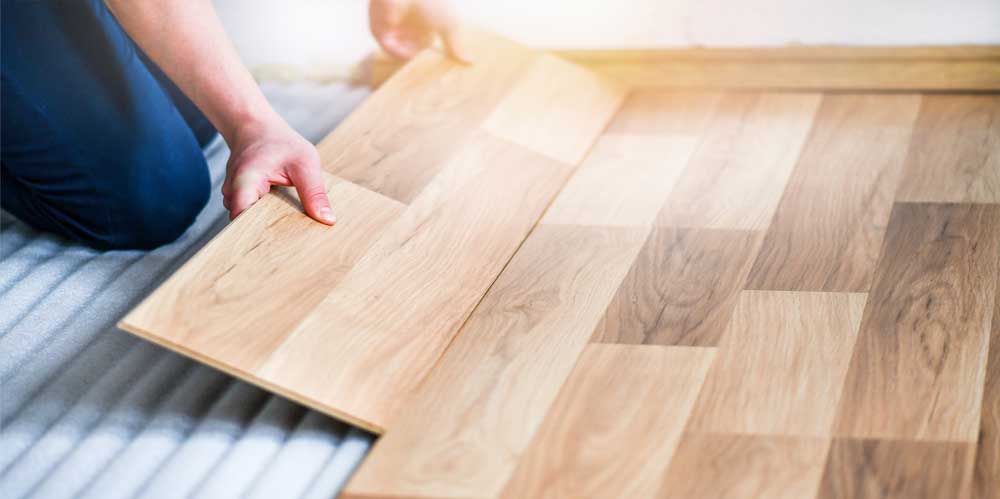
Vinyl flooring and laminate are both affordable, durable, and customizable flooring options that are often used for both commercial and residential projects. One of the main advantages of both flooring options is that they are easy to install. They can even look quite similar, but there are some significant differences that need to be taken into consideration when selecting the flooring for your home or office.
What Is Laminate Flooring?
Laminate flooring is generally considered one of the first made-made alternatives to wooden floors, and was invented in the 1970s. Usually, laminate flooring is chosen as a cheaper alternative to the hardwood floors. Laminate is made of synthetic materials and resembles the look of real wood. Laminate is thick, hard, and durable – its minimum thickness is 6 mm.
Advantages and Disadvantages of Laminate Flooring
Some of the various advantages and disadvantages that can come from this type of flooring will include:
Advantages
- It can last for decades with proper care and maintenance
- The maintenance is very easy
- It is a much more affordable option than other flooring options of the same quality
- It is scratch-resistant and impact-resistant
- It is easy to clean
Disadvantages
- There are some specific types of laminate that may be difficult to install
- It is not water-resistant, which makes it susceptible to moisture damage
- It is not made of natural materials
- It may produce unwanted sounds
- Laminate may contain some dangerous toxic compounds
- It is not easy to repair laminate – in most cases, you will have to replace it completely

What Is Vinyl Flooring?
Vinyl flooring is also very popular, and it is often used in both commercial and residential projects. Vinyl flooring was popularized in the mid-20th century, and it still remains very popular to this day. Vinyl flooring is appreciated for its durability, comfort, softness, easy maintenance, and variety in design.
Advantages and Disadvantages of Vinyl Flooring
Just like laminate flooring, vinyl has its own pros and cons. It is important to consider them all before making any decisions.
Advantages
- It is comfortable and soft
- It is quick easy to install
- It costs less than other flooring options
- It is waterproof and moisture resistant
- There is a great variety of patterns and colors, so you can do exactly what you need to match the decor and interior of your house
- It is soft and does not make any noise
- It is one of the most durable flooring options that are perfect for areas with heavy traffic, such as kitchens and bathrooms
Disadvantages
- It can be easily scratched and damaged, so it is not recommended to use it for heavy loads
- It is not good for outdoor spaces because it is not resistant to extreme temperatures
- Colors may start fading after a while, especially if vinyl flooring is exposed to direct sunlight
- It can be difficult to remove it
How to Choose Between Laminate and Vinyl Flooring?
If you are choosing between these two options, it can be hard to decide. Here is a list of other factors that should be taken into consideration:
Cost
The cost of both these materials is generally very similar. They are both considered to be inexpensive, and provide much more affordable flooring than other flooring options of similar qualities. However, there is luxury vinyl flooring that can be more expensive than laminate and regular vinyl flooring options.
Installation
One of the most significant differences between these two options is installation. In order to install laminate, you need to use a click-and-lock installation technique. It is also important to note that since laminate is usually installed as a “floating” floor, you cannot install it over the existing floor. Vinyl floor has several installation techniques that can be used. These techniques include glue down, peel-and-stick technique, click-and-lock planks, and some others.
Water and Moisture Resistance
Water-resistance is one of the most significant differences between these two options. Thus, vinyl flooring is absolutely water-resistant. Vinyl can be exposed to water for a long period of time and then be used again as normal. Laminate is different – it is not very water-resistant, so it should not get wet. Therefore, experts do not recommend choosing laminate for kitchens, bathrooms, and laundry rooms.
Appearance And Design
If you want your floor to look realistic and resemble actual wood, then laminate is a better option. The main reason for that is that laminate contains wood byproducts, which makes it more natural. Vinyl is different – it is made of synthetic materials.
Comfort
Both flooring options are comfortable, but there are some differences between them. Laminate has a more comfortable feel underfoot than vinyl. This is because its composition is thicker with wood content, which helps laminate feel softer and warmer. Vinyl is harder and cold in touch because there is no insulation between vinyl and the subfloor. Therefore, experts do not recommend choosing vinyl for bedrooms and living rooms.

What Is Better – Laminate or Vinyl Flooring?
There is no answer to this question because both laminate and vinyl are strong, durable, and beautiful floors that are much cheaper than real wood. If you do not know which option is better for you, you need to give the pros and cons of both vinyl and laminate some thought and decide what is more important to you.
If you need help with choosing the perfect flooring option, S&R Carpet and Floors located in Westford MA will be glad to assist you. We specialize in all types of flooring, including laminate and vinyl. If you have any questions or are ready to schedule an appointment with us, feel free to give us a call.
